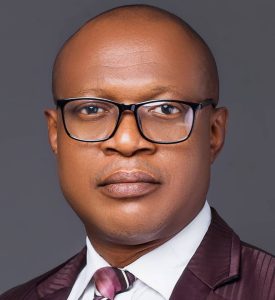The Department initially handled courses leading to the University Diploma and Higher National Diploma qualifications.
On 6th August, 1980 the Rivers State Government promulgated a law to establish the Rivers State University of Science and Technology and transferred the assets and liabilities of the College of Science and Technology, Port Harcourt to the University. The School of Engineering of the College thus became the Faculty of Engineering of the University. In 1984, the Council for the Regulation of Engineering in Nigeria gave full accreditation to the Department.
The Department developed her programmes from the Diploma programmes of the College of Science and Technology. The following persons: Dr. E. E. Wasilenko, Engr. A.B. Piam and Engr. O.O. Orike, were very instrumental in migrating the Diploma programmes into degree programmes of the Department.
The early Heads of the Department who were involved in developing the Department are:
- Dr. E. Wasilenko (1980 – 1985), an Associate Professor of Electric Machines and High Voltage Engineering from Poland.
- Engr. O. O. Oruye (1985 – 1987).
- Engr. Dr. D. C. Idoniboyeobu (1987 – 1989).
The headship revolved between Engr. O. O. Oruye and Dr. D. C. Idoniboyeobu until 2003.
- Engr. Dr. C. O. Ahiakwo (2003 – 2009).
- Engr. Prof M. J. Ayotamuno (2009 – 2011).
- Engr. Dr. D. C. Idoniboyeobu (2011 – 2015).
- Engr. Dr. S. Orike (2015 – 2018)
- Engr. Dr. S. L. Braide (2018 – 2020)
- Engr. Prof. D. C. Idoniboyeobu (2020 – 2023)
- Engr. Dr. H. N. Amadi (2023 – Date)
The Department runs programmes leading to the award of: Bachelor of Technology (B.Tech.), in Electrical Engineering with the options in Power and Electronics; Postgraduate Diploma (PGD) in Electrical Engineering with the options in Power and Electronics; Master of Technology (M.Tech.) in Electrical Engineering with the options in Power, Electronics and Communication; and Doctor of Philosophy (Ph.D.) in Electrical Engineering with the option in Power.
The undergraduate programme is designed to provide fundamental knowledge and then deepen the students’ grasp of Electrical Engineering. It also introduces them to the techniques and tools of research, develops in them the spirit of enquiry and generally prepares them to face challenges and solve problems in the field of Electrical Engineering.
The first two of the training periods of five years are common to all Departments in the Faculty. They are devoted to advanced studies in basic science and fundamental engineering courses. After the 3rd year, students go into their preferred option – Power or Electronics.
A central activity in Electrical Engineering, features prominently in these years, so also are the necessary tools of Mathematics, Numerical Methods and Computing. Furthermore, an equivalent of one-year industrial work experience (3 months during the long vacation after their 2nd and 3rd years, and 6 months in the second semester of the 4th year), is provided in this period to develop professionalism and adaptability towards industrial life.

